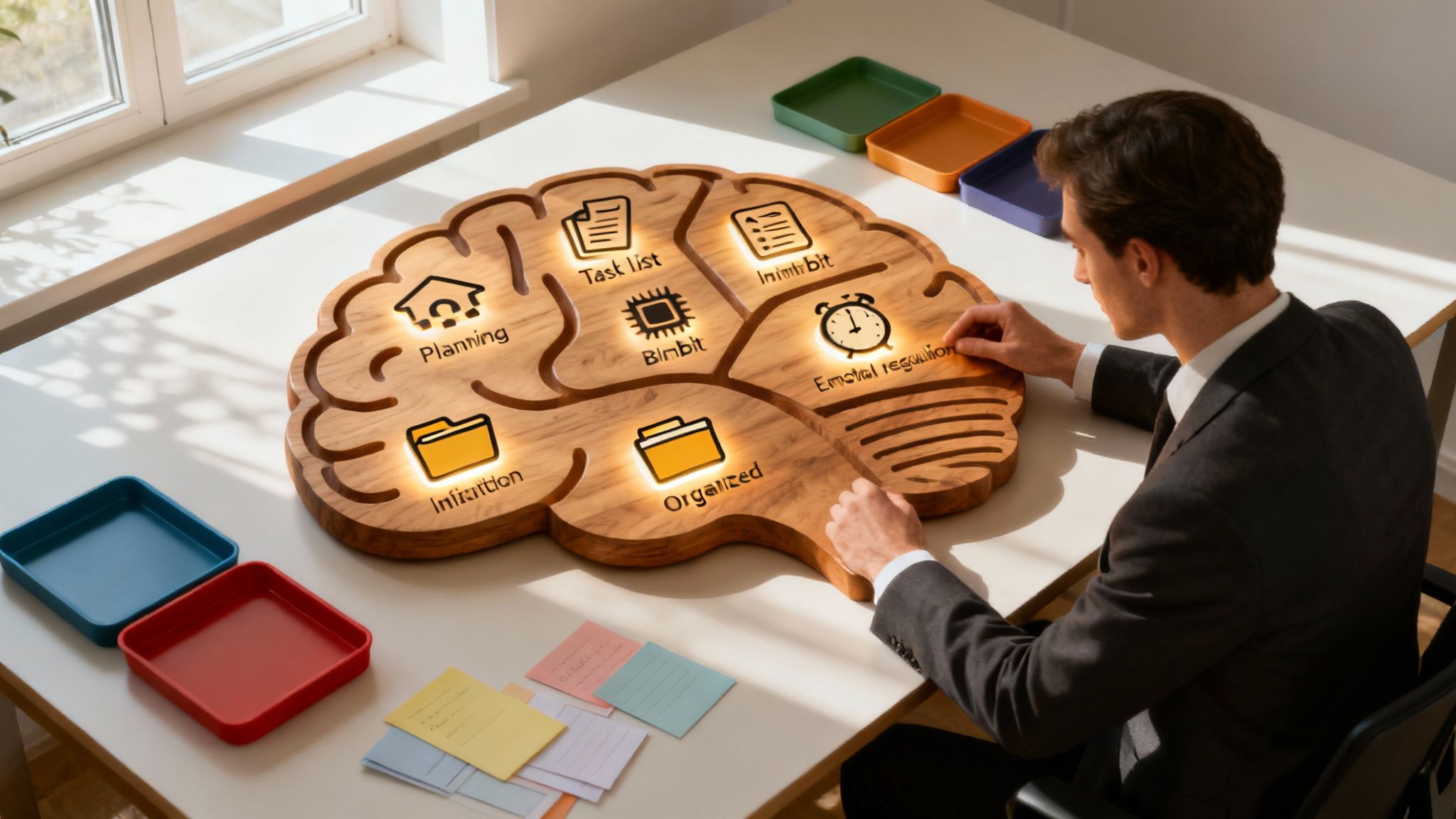ADHD brains have a different relationship to time than neurotypical brains. So if you have ADHD, there's a good chance you have experienced time anxiety, though it's not solely an ADHD thing.
Too long; didn't read
- Time anxiety is not just an ADHD thing, but ADHD brains do perceive time differently.
- ADHDers typically need help estimating how much time has passed or the time required for a task, causing difficulties with planning.
- Time anxiety can lead to a vicious cycle of procrastinating, worrying about being unproductive, then leading to being unproductive…
- With the right tools and tricks, such as not-to-do lists and monotasking, it's possible to overcome the vicious cycle.
Time anxiety: time spent worrying about spent time
Time anxiety can present itself in many different ways. This fear of time passing by too quickly can manifest in fear of being unproductive.
For many people, it can start a vicious cycle. Worrying about not using time efficiently leads to looking for easy dopamine. However, once spending time procrastinating and being unproductive, the cycle comes full circle by stressing about wasted time.
Time anxiety is not the fear of time; it's the fear of wasting time.
The strained relationship between ADHD brains and time
Time blindness
It's hard to say how many ADHDers experience time anxiety as it's difficult to measure. Time myopia, or "time blindness," is a non-scientific term to help understand the relationship between ADHD brains and time.
Have you ever felt like you couldn't start a task because you have a meeting in three hours, or left home thinking you'll be on time even though it's a 20-minute commute and there are only five minutes left until the appointment?
That's time blindness.
The time horizon
This non-scientific term means the furthest point in time you can plan or see ahead.
Some neurotypical people claim they can plan several years in advance. This claim may feel unbelievable to some ADHDers, as the furthest they can realistically plan is a couple of weeks. Since the time horizon is directly connected to delayed gratification (which ADHD brains struggle with), anything scheduled too far ahead is remembered as "not now."
ADHD brains commonly have planning deficiencies, as future rewards can be perceived as less rewarding than present ones.1,2
9 ADHD time management hacks
If you struggle with managing your time effectively, you may spend more time worrying that you're procrastinating than actually procrastinating, leading to a vicious cycle.
That will lead to taking on too much at once, more procrastination, stress, and eventually, overwhelm shutdown.
So what can we do to break the cycle?
1. Use the monotasking technique
You can't do everything at once.
Break up your work into smaller steps and do them one at a time. For example, with multiple tasks, find the one you want to start with (e.g., easiest to hardest or vice versa) and do only that. Avoid task-switching, as this is particularly difficult for ADHD brains.
2. Use lots of clocks and timers
If you struggle with time perception, use clocks or timers to monitor how much time you spend on something. Your perception of time will improve as you use this method, but if you get too anxious checking the clock that often, set alarms.
For time-sensitive tasks, increase your clock-checking only when it's getting close.
3. Set imaginary deadlines
If you have problems meeting deadlines, set your deadlines before the actual ones. It may be easier to remember the date you establish yourself and use it as a goal. Giving yourself enough time ahead creates a buffer. Tell a friend your deadline to stay accountable.
4. Externalize your memory
Memory is always a difficult thing to manage. Externalize your memory by writing down your tasks and organizing them in a way that works for you. Set up an order in which you can best achieve your goals. Order the tasks by urgency, importance, and enjoyment.
5. Take breaks
If you don't set aside time to rest, your body will choose a time for you. Procrastination is your brain forcing you to take break when you can't afford one. So build in rest times during your day.
6. Make a never-to-do list
You know yourself and your habits best, so set up a list of things you typically do when you're avoiding the important things. Call that list the "never-to-do list" or your "not-to-do list" and have it visibly remind you what not to do.
7. Long-term goals
If your time horizon is too far, it's easy to forget your long-term plans. Make a list of your long-term goals and how you want to achieve them. Then, set time aside each month to work only on that.
8. Recruit some help
If you are still struggling with time management, there's no shame in asking for help. For example, you could ask friends to remind you of things, coaches, or colleagues to take some of your workload.
9. (Try to) let go of your perfectionism
Perfectionism is a common trait for many ADHDers, but this can quickly eat away at your time to get things done. Sometimes things don't need to be perfect. Go easy on yourself.
-
Sources:
1American Professional Society of ADHD and Related Disorders (APSARD) | ADHD and the Choice of Small Immediate Over Larger Delayed Rewards: A Comparative Meta-Analysis of Performance on Simple Choice-Delay and Temporal Discounting Paradigms
2Neuropsychology | Planning deficits in children with attention-deficit/hyperactivity disorder (ADHD): A meta-analytic review of tower task performance








